

Teenage Identity Crisis - Who Am I? Mapping brain maturation and cognitive development during adolescence. Physical and Psychosocial Effects of the Changes in Adolescence Period. Social cognitive development during adolescence. ADOLESCENCE AND IDENTITY DEVELOPMENT - SoCal Adolescent Wellness. The World Health Organization (WHO) defines an adolescent as any person between the ages 10 and 19, while American psychologists typically narrow it to 12 to 18 years of age.
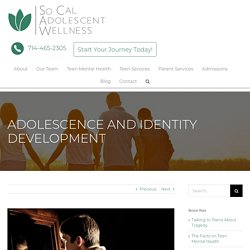
But under either classification, it is clearly a difficult and challenging time of life, for the adolescent and their parents, relatives and adults around them. According to Amy Bellows, Ph.D., it is a time when teens bodies kick into overdrive. They may find themselves disoriented, scared and alone. In addition, often they also become moody, secretive and sarcastic.
Adolescent Identity Development: What to Expect in Teens. Adolescent Identity Development: The Factors of Change Among the profound and exciting changes taking place in adolescence is the process of self-discovery. Our teens are working to figure out who they are, making adolescent identity development a central feature of teen life. Erikson's Stages of Psychosocial Development & High School Students. Erik Erikson (1902-1994) was a pupil of Sigmund Freud and the first child psychoanalyst in Boston.
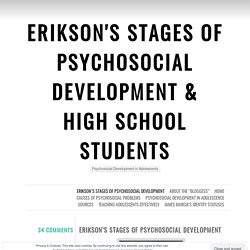
After extensive study of children from various cultural backgrounds and areas he began to compile this information to form his theories on development, personality, and what forms our identity. Erikson’s theory breaks down psychosocial development into eight (and eventually a final ninth) stages. These stages are delineated by age and characterized by a struggle or crisis that must be overcome in order to adapt and continue to develop.
Here is a breakdown of the stages: Infancy (Birth-18 months) – At this stage, we as human beings are completely dependant, helpless. Erikson's identity vs. role confusion stage - Developmental Psychology: Child Development. Who am I?
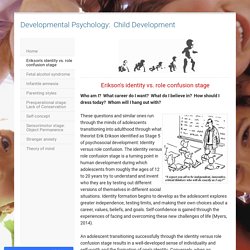
What career do I want? What do I believe in? How should I dress today? Identity vs. Role Confusion in Erikson's Theory. Identity versus confusion is the fifth stage of ego according to psychologist Erik Erikson's theory of psychosocial development.
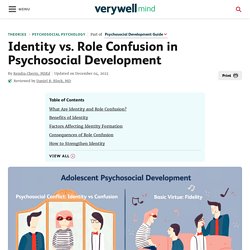
This stage occurs during adolescence between the ages of approximately 12 and 18. During this stage, adolescents explore their independence and develop a sense of self. 8 Stages of Development by Erik Erikson. Adolescent mental health. Introduction Adolescence (10-19 years) is a unique and formative time.
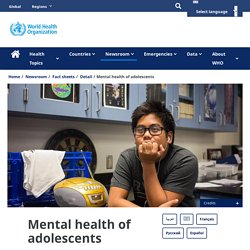
Multiple physical, emotional and social changes, including exposure to poverty, abuse, or violence, can make adolescents vulnerable to mental health problems. Promoting psychological well-being and protecting adolescents from adverse experiences and risk factors that may impact their potential to thrive are critical for their well-being during adolescence and for their physical and mental health in adulthood. Teen Depression: Symptoms, Diagnosis, Medications & More. The mental and emotional disorder known as teen depression is no different medically from adult depression.
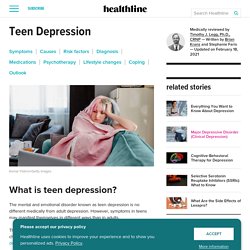
However, symptoms in teens may manifest themselves in different ways than in adults. This may be because teens face different social and developmental challenges, such as peer pressure, changing hormone levels, and developing bodies. Depression can be associated with high levels of stress, anxiety, and — in the most serious scenarios — suicide. What Adolescents Really Need from Parents. As a parent of adolescents, I’ve often worried about their health and happiness.
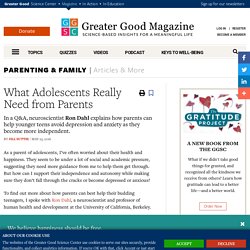
They seem to be under a lot of social and academic pressure, suggesting they need more guidance from me to help them get through. But how can I support their independence and autonomy while making sure they don’t fall through the cracks or become depressed or anxious? To find out more about how parents can best help their budding teenagers, I spoke with Ron Dahl, a neuroscientist and professor of human health and development at the University of California, Berkeley.